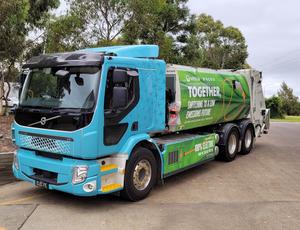Read a snapshot of some of the policy and regulatory updates relevant to the environment in the January to March 2024 quarter across Australia and New Zealand.
Only got 60 secs? Here’s a quick recap
- Climate Change Authority reviews NGER scheme
- Australia’s new vehicle efficiency standard
- New Zealand to repeal Three Waters legislation
- Energy ministers meet to address barriers to energy transition
- Net Zero Economy Authority to manage transition
- $1bn goes to domestic solar manufacturing
Climate Change Authority reviews NGER scheme
An independent review by the Climate Change Authority (CCA) found Australia’s National Greenhouse and Energy (NGER) Scheme is performing well, but also that the time is right to make some changes. The review produced 25 recommendations to ensure the scheme remains fit for purpose given that the government and public have increased demand for emissions and energy data. These recommendations cover scheme coverage – including extending NGER coverage to publicly owned landfills, and estimation methods including fugitive methane measurement, reporting and verification, and scheme administration and compliance. The federal government will provide a formal response no later than mid-2024.
Veolia’s position
Veolia supports many of the recommendations made in the CCA’s independent review of the NGER Scheme. Emissions reporting for all landfills in Australia is important for transparency, accountability, and driving action in reducing greenhouse gas emissions. Veolia also strongly advocates recognising Scope 4 emissions (or ‘avoided emissions’) as another lens considered in looking at net zero. Scope 4 recognition will enable us to account for the holistic impact and benefits our industry brings with the proper treatment of waste, avoiding the use of virgin materials (through increased recycling) and the assistance provided to organisations as they transition to less carbon-intensive production. This provides vital evidence to assess which climate actions, solutions, and technologies offer the most significant emissions reductions. It is also pivotal for building a compelling business case for further investment in recycling and resource recovery infrastructure.
Australia’s new vehicle efficiency standard
The Albanese Government has introduced a new vehicle efficiency standard for Australia. This standard requires car makers to meet targets for average emissions per kilometre from new vehicles sold and only applies to new passenger and light commercial vehicles. Manufacturers will still be able to sell heavy-emissions vehicles, but those sales must be offset with the sales of low or zero-emission vehicles. The government projects that Australians stand to save about $1000 per vehicle per year. The Electric Vehicle Council’s chief executive Behyad Jafari said: "Australia has always been at the back of the queue when it comes to the best and cheapest electric vehicles because car makers have been incentivised to offer them elsewhere first. That should end now with this policy.”
Veolia’s position
With buyers of new passenger and light commercial vehicles now given better access to a diversity of electric vehicle models, attention should shift to policies that support the uptake of heavy electric vehicles. Veolia ANZ is powering up for a low emissions future, after trialling a new bright green electric-powered Volvo garbage truck in Canberra in 2024. The truck was part of a partnership with Volvo and was another step in our plans to transition our 2,700-strong fleet to electric. Canberrans saw the truck on their streets collecting rubbish in January and February as Veolia tested its capabilities in tight spots and over different distances. Veolia has also rolled out EV charging stations at three facilities in Queensland and there are plans for 20 more charging stations nationally by early 2024.
New Zealand to repeal Three Waters legislation
The Nationals government will repeal the previous government’s Three Waters reforms and replace them with legislation that restores local council ownership and control of water services and responsibility for service delivery. A technical advisory group has been established to advise on its implementation. Local Government Minister Simeon Brown said the first of two bills would be passed by the middle of this year and would set out provisions related to council service delivery plans and transitional economic regulation. The estimated shortfall for water infrastructure investment over the next 30 years is $130-185 billion. Councils will need to put forward financial plans and ring-fence funds specifically for water infrastructure.
Veolia’s position
As one of New Zealand’s major water and wastewater service providers, Veolia is engaging closely with the government through these legislative changes. Veolia safeguards public health and protects the environment for more than 620,000 New Zealanders, through our operation and maintenance of more than 350 water and wastewater facilities, including 33 water treatment plants and 29 wastewater treatment plants. We deploy smart asset solutions to manage 5,400 km of underground assets, including conducting inspections, monitoring performance data and managing terabytes of data to target interventions to ensure every ratepayer dollar is spent where it will have the most significant impact. Urgent investment is required to bring ageing assets up to industry standards and reduce pressures on operations and maintenance activities.
Energy ministers address barriers to energy transition
The Energy and Climate Change Ministerial Council (ECMC) met in Canberra to tackle barriers to Australia’s clean energy transition. Ministers were updated on the Capacity Investment Scheme and Renewable Energy Transformation Agreements, committed to working on a national developer ratings scheme and discussed Australia's emissions projections and progress in developing net zero sectoral plans. The Council also considered the review of the Future Market Design of the National Electricity Market and accepted recommendations to enhance the Integrated System Plan (ISP).
Veolia's position
Close coordination between the states and territories is essential if Australia is to ensure a smooth transition to a low-emissions economy. As the Australian Government develops its sectoral decarbonisation plans which, between them, cover all major components of the economy’s emissions, they have identified the circular economy as “a cross-cutting issue for all sectors”. Reusing materials emits less CO2 than extracting, producing and transporting new resources. Veolia is engaging with the federal government to demonstrate how shifting to a more circular economy is good for the economy, local environments and the climate.
Net Zero Economy Authority to manage transition
The federal government introduced legislation to establish the Net Zero Economy Authority and capitalise on the global shift to net zero emissions, transforming the country into a renewable energy superpower. The Authority will act as a catalyst for private and public investment, major project development, job creation, and skills and community development. The government has allocated $189.3 million over four years for the Authority's operations. It will facilitate participation and investment in emissions reduction projects, support workers in transitioning to new employment, engage communities, and promote coordination across government policies. This legislation is part of the government's plan to achieve a net zero economy by 2050.
Veolia’s position
Veolia is well positioned to capitalise on Australia’s opportunity to become a clean and circular global powerhouse. Tens of thousands of new jobs will be created in Australia's circular, zero-emissions economy, amid an increased focus on reducing waste and preserving resources. KPMG estimates that a circular economy in food, transport and the built environment alone represents a potential economic benefit of $210 billion in GDP and an additional 17,000 full-time equivalent jobs for Australia by 2048. Veolia will continue to have growing needs for skilled vehicle and machinery operators, technicians, mechanics, engineers, scientists and many more to power a circular economy industry – many of the same skills already used in other sectors.
$1bn goes to domestic solar manufacturing
The Australian Prime Minister Anthony Albanese headed to the Hunter region of NSW to announce the Solar SunShot program, a $1 billion initiative designed to boost solar panel manufacturing in the country. The program will transform the site of the closed Liddell Power Station into a solar manufacturing hub, creating hundreds of jobs and increasing Australia's role in the global solar manufacturing supply chain. Currently, only 1% of solar panels in Australia are manufactured locally, despite one in three households having solar panels. The program aims to change that by providing production subsidies and grants.
Veolia’s position
As Australia looks to manufacture renewable infrastructure at scale, so, too, must we invest in recycling and resource recovery at scale. At the end of their useful life, renewable infrastructure such as solar panels, wind turbines and lithium batteries still contains billions of dollars worth of valuable commodities that can be recovered and returned to a domestic manufacturing sector. Australia must invest in pilot projects that lead to an industrial-scale recycling industry of renewable infrastructure. Equally important is that the federal government’s upcoming regulatory product stewardship scheme for small electrical and electronic equipment and solar photovoltaic systems ensures Australian manufacturers design and manufacture products that can be easily recycled.





